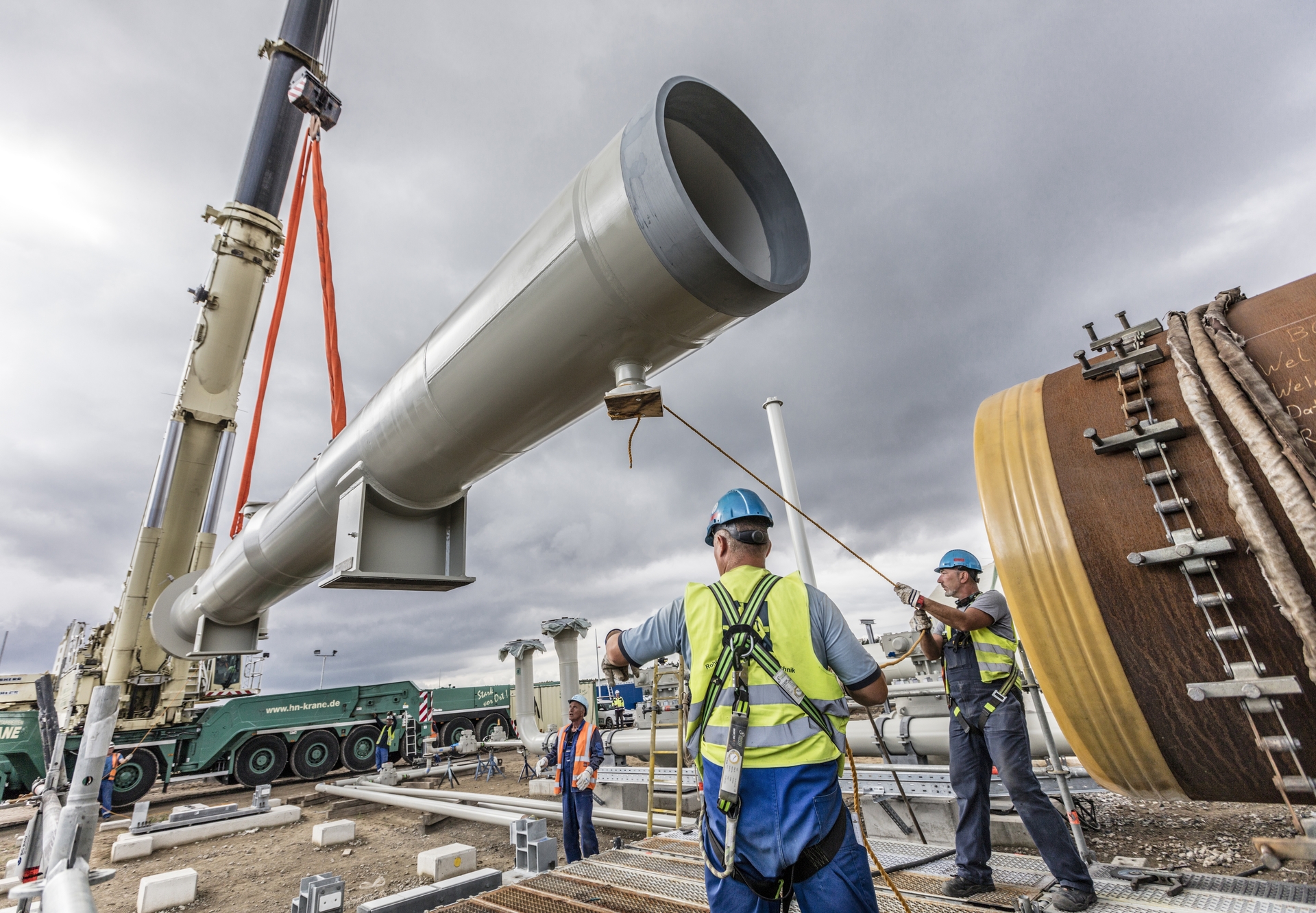The head of the German gas and oil company Wintershall Dea, Mario Meren, said that the construction of Nord Stream 2 would be completed before the end of 2019. He noted that Denmark’s permission to lay a gas pipeline on the continental shelf of the country was the last link, and now nothing prevents the implementation of the project.
“The permission of Denmark is the last link, now the project has all the approvals. If I am not mistaken, the Danish part is 140 km, that is, for two branches it is 280 km. I am sure that the construction work will be completed this year, ”Teren quotes Merena.
At the same time, the head of the company did not specify the start date for laying the pipeline in the Danish section. He explained that as winter approaches in the Baltic, weather conditions worsen and work becomes more difficult, but this was taken into account in the construction schedule.
On October 30, the Danish Energy Agency issued permission to lay Nord Stream 2 south-east of Bornholm Island in the Baltic Sea.
Leading expert of the National Energy Security Fund, lecturer at the Financial University under the Government of Russia Igor Yushkov said that the issue of completing the construction of the pipeline has become more technical. He explained that it would take about four more weeks to complete the pipe laying, but so far Germany itself did not receive gas through the Nord Stream 2 pipeline.
“Now it’s not so important whether they have time to finish building it before December 31, or it will be in early January-February, because the infrastructure in Germany is not ready for gas through Nord Stream-2.” The Europeans themselves on their territory did not manage to finish the continuation of Nord Stream 2, ”Yushkov explained in an interview with RT.
Recall that Nord Stream 2 represents two lines of a gas pipeline with a total capacity of 55 billion cubic meters of gas per year, stretching from the Russian coast through the Baltic Sea to Germany. The pipeline passes through exclusive economic zones and territorial waters of five countries - Germany, Denmark, Russia, Finland and Sweden.
- © nord-stream2.com
The construction of the gas pipeline is opposed by Ukraine, which fears loss of revenue from transit of Russian gas, as well as the United States, which is promoting its liquefied natural gas in the EU. In addition, the Russian side was faced with difficulties due to the EU Gas Directive extending the requirements of the Third Energy Package to offshore pipelines coming to the EU from third countries.
The third energy package implies that the operator of any international gas pipeline in Europe should reserve half the capacity for third-party fuel suppliers. Initially, it was a question of pipes laid overland, but in May 2019, the EU expanded the requirements for the corresponding infrastructure running along the seabed.
The European Commission claims that the directive is designed to comply with energy security and ensure the absence of a monopoly, but experts are convinced that the measure is aimed directly against Nord Stream 2.
Recall that Germany succeeded in making the decision to exclude a project from these rules not Brussels, but the EU country on whose territory the gas pipeline extends. Bundestag deputies introduced a bill according to which the requirements of the Third Energy Package will not apply to foreign gas pipelines if they were funded before May 23, 2019, which corresponds to Nord Stream-2. However, during the first review, there were not enough votes to pass the bill. A second discussion of the document should take place on November 13.
Igor Yushkov, in a conversation with RT, confirmed that the third energy package is a problem that needs to be addressed. He noted that in May 2018, Europeans used antitrust laws as sanctions. According to the expert, Europe technically extended the third energy package to all offshore gas pipelines, but in fact the innovation affected only Nord Stream 2.
“That is, in practice, no other gas pipeline fell under this regulation, except for the Russian one. And here, on the one hand, Gazprom filed a lawsuit against the European Union yesterday that it depreciates investments and that it is prohibited by the EU energy charter ... Construction will be completed, and the main task for Gazprom is to bring Nord Stream 2 from under the Third Energy Package, ”said the expert.
He noted that Russia will have to put pressure on the EU and demand that it not try to use antitrust laws as a sanction package.
“The fight will be long, but we have experience of a positive outcome of such cases,” the expert concluded.
Recall, on November 11, it became known that the operator of the Nord Stream-2 project, Nord Stream 2 AG, began arbitration against the European Union due to the inconsistency of the amendments to the gas charter of the Energy Charter. According to the organization, the EU violated its obligations by adopting “discriminatory amendments” to the directive.

